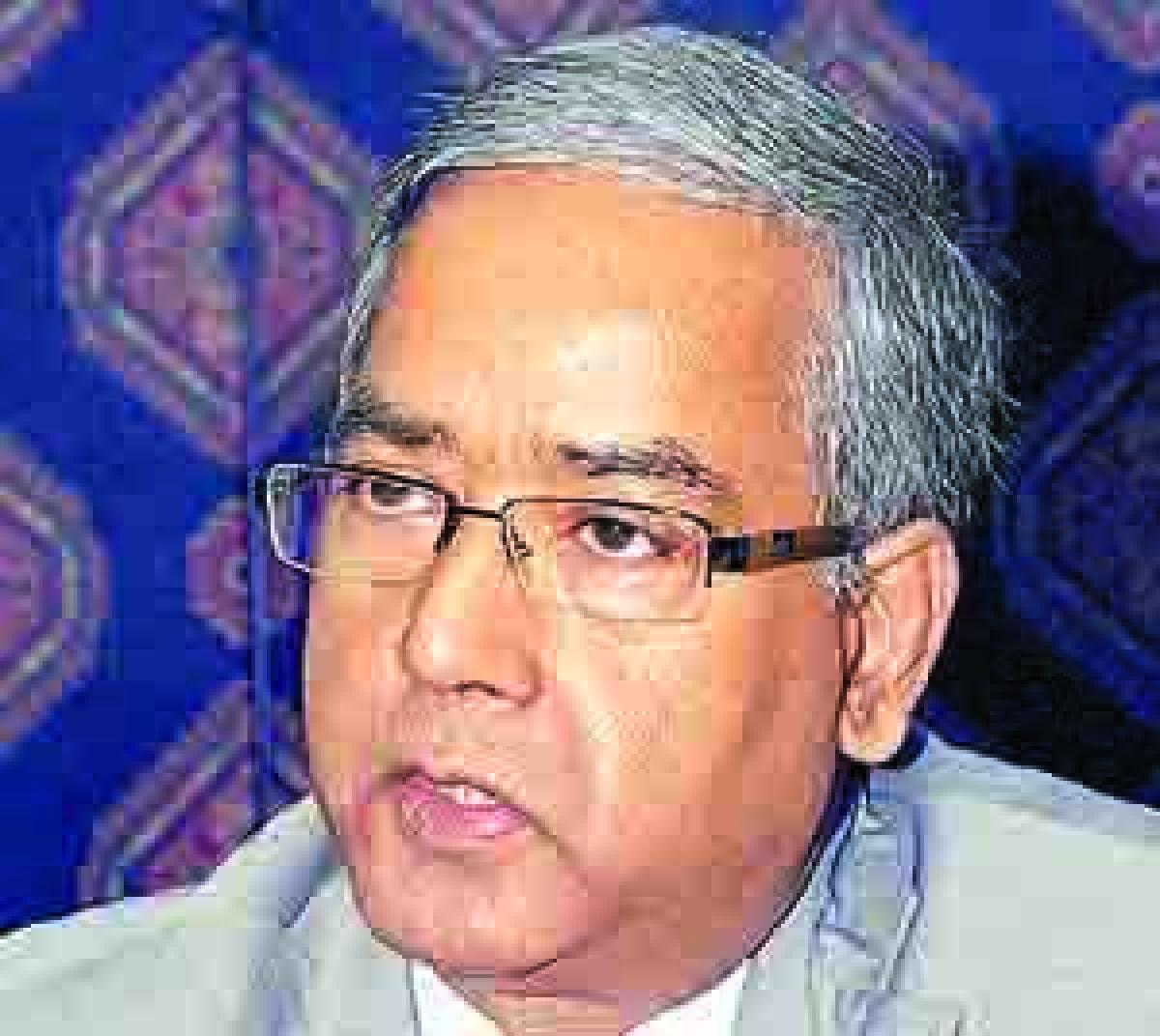Live
- Flipkart rolling out own payments app 'Super.money'
- PM Modi hugs, showers praise on two 'special guests' in Parliament
- T20 World Cup: ICC, CWI release extra tickets for final match
- After the Indo-Pacific, India, US to focus on cooperation in the Indian Ocean
- Mahela Jayawardena resigns as consultant coach of Sri Lanka Cricket
- West Bengal Cabinet Approves 552 New Vacancies
- ABVP urges Delhi University for centralised PG hostel allocation form
- T20 World Cup: Afghanistan’s march to semis is an ode to their courage and perseverance
- 98-day survey of MP’s Bhojshala complex ending, will ASI submit final report or seek extension?
- Centre seeks report from TN govt on claims that Foxconn doesn't hire married women at its iPhone plant
Just In

Shareholder’s activism a game changer. Urging investor groups to play an active role in governance matters of listed firms, Sebi on Friday said AGMs are no more \'chai-samosa\' parties and shareholder activism globally has forced even CEOs to resign at one-fourth of the world\'s 500 biggest companies.
 Corporate Governance
Corporate Governance
Sebi says AGMs are no more ‘chai-samosa’ parties
If you look at the top Fortune 500 companies globally in the last three years, almost one-fourth of the CEOs have been removed because their nominations were rejected by the shareholders and that rejection was prompted and argued by the proxy advisory firms and other investor groups – U K Sinha
Disclosure of face value must
In a bid to help small investors understand the true value of shares, markets regulator Sebi has made it mandatory to disclose the face value of a stock along with the share price, Chairman U K Sinha said. The direction applies to the share prices displayed through tickers on media platforms like TV channels.
"Now on news channels, when you have a ticker of the share prices, there has to be a mention of the face value, whether it is Re 1, Rs 2 or Rs 10. Now every share price which is displayed in the media, there has to be a mention in the top about its face value," Sinha said.
Chennai: Urging investor groups to play an active role in governance matters of listed firms, Sebi on Friday said AGMs are no more 'chai-samosa' parties and shareholder activism globally has forced even CEOs to resign at one-fourth of the world's 500 biggest companies.
Appreciating the role of some shareholder groups in the country, Sebi Chairman U K Sinha said here that the regulator has huge expectations from the investor associations but sadly their role has been going down over a period of time. Giving examples, Sinha said that the number of investor awareness camps, for which Sebi also provides some financial support, has gone down in the last 2-3 years.
"We have started consultations with the associations. We have also now started consultations at the regional level to find out why they can not be more active," he said. Stating that the gap is being filled to some extent by the media and the proxy advisory firms in India, Sinha said the trends are very encouraging in some other parts of the world.
"If you look at the top Fortune 500 companies globally in the last three years, almost one-fourth of the CEOs have been removed because their nominations were rejected by the shareholders and that rejection was prompted and argued by the proxy advisory firms and other investor groups," Sinha said.
"In India also, it has started happening in a small way. The shareholders are asking questions here also now. They have started asking questions that why a certain percentage of bonus or dividend is being recommended. What is the justification? What is that great the company has done?
Listing out the measures put in place for better participation by investors, Sinha said Sebi has introduced the concept of electronic voting so that a shareholder does not need to travel a long distance for attending the meetings.
"Even media in India and outside India, is getting into that field. So I would strongly recommend that there is some need to reinvent the role of investor association also. Sinha said TIA has played a pioneering role and there are 18 other investor associations that are registered with Sebi.
"However, the contribution which the investor groups have been making in the past and the challenges being faced today in the markets call for for much better cooperation and activities on the part of the investors association," he said while asking TIA to take a lead in this regard.
Sinha also talked about the various steps taken by Sebi for investor protection and in other areas and listed measures implemented in the IPO market and on corporate governance. Sinha also said that Sebi has mandated minimum 25 per cent public shareholding in every listed company and this has been implemented for even public sector companies.

© 2024 Hyderabad Media House Limited/The Hans India. All rights reserved. Powered by hocalwire.com







